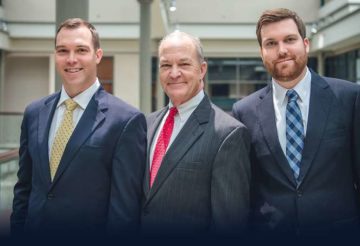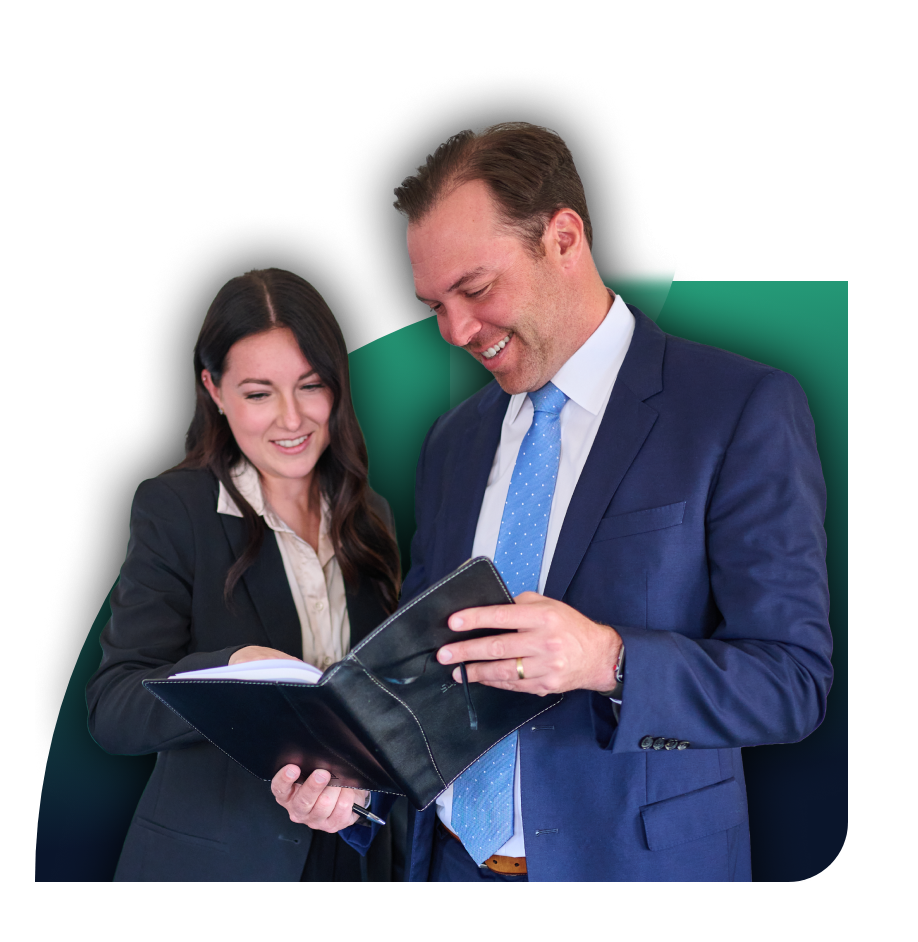Despite their convenience, rideshare services like Uber and Lyft often injure drivers and passengers in accidents.
If you or a loved one sustains injuries in a rideshare car accident, you may be able to recover compensation from different parties, depending on liability. These complex cases may involve more than one liable party, so you need a lawyer to determine your legal options.
What Causes Rideshare Accidents?
There are multiple common causes of Uber and Lyft car accidents. These could include the following:
Distracted Driving
Distracted driving is one of the leading causes of car accidents, but it is potentially an even more considerable risk with rideshare services. This increased risk is because rideshare drivers must constantly monitor their mobile devices. They always check which route to take and either accept new riders or confirm various actions along the way. They also review passenger information and look for specific drop-off and pickup points.
Not only can a driver’s screen distract them, but a conversation with passengers may serve as another source of distraction. In any case, distracted driving can remove the driver’s attention from the road and momentarily increase the risk of an accident.
Driver Fatigue
Rideshare drivers may work long hours to make more money or engage in rideshare driving as a side job for supplemental income. In either instance, drivers can experience fatigue that increases the risk of an accident. If drivers operate a rideshare vehicle when tired, they may experience decreased awareness or even fall asleep at the wheel.
Driving in Unfamiliar Locations
Drivers may also be unfamiliar with many locations they drive in, particularly in cities or towns they have not visited before. This potential unfamiliarity could lead to slower driving, drivers making unexpected stops, or suddenly turning. They may also experience distractions when scanning the area outside of their windows.
Looking for Passengers
When picking up passengers in areas that they are not familiar with, drivers may need to look around outside the vehicle to spot them. In the process, they may make unexpected stops fail to look at traffic or passengers directly in front of them as they look to the side, or make sudden turns all of which can further increase the chances of an accident.
Reckless Driving
Rideshare drivers may also engage in reckless driving that risks themselves and others. These behaviors could include speeding, cutting off other vehicles, tailgating, or violating the standard rules of the road.
Impaired Driving
In some cases, rideshare drivers may also operate vehicles under the influence of alcohol or other drugs. This could impair their judgment and general driving ability, potentially leading to an accident.
Parking in Dangerous Areas
When picking up or dropping off passengers, drivers may also neglect to park in a safe area that is out of the way of pedestrians and traffic. Doing so could lead to an accident as others do not expect the driver to park or stop in areas with flowing vehicle or foot traffic.
Poor Vehicle Maintenance
Drivers must maintain their vehicles to ensure safe operation. If they do not take their vehicles in for routine maintenance or repairs, parts may fail, and vehicles could malfunction. These risks can easily lead to an accident.
Poor Road Conditions
The driver is not always responsible for an accident. Some accidents may result from poor road conditions that the driver could not anticipate. For example, municipalities that fail to fill potholes and major cracks on neglected roads can cause severe accidents.
Violent Acts
In rare instances, rideshare drivers may exhibit violence that causes direct injury to passengers. Rideshare services should perform background checks on new drivers to prevent this. If not, violent drivers may get behind the wheel of a rideshare vehicle.
These and other causes can make rideshare drivers and other parties responsible for accidents resulting from negligence or improper conduct. In these and other car accident cases, victims may be able to file a claim or lawsuit for injuries and other damages they sustained due to other parties' negligence.
Who Is Liable for an Uber or Lyft Car Accident?
When filing an accident claim or lawsuit following an Uber or Lyft car accident, victims must identify liable parties and prove that they were responsible for the accident.
In most cases, plaintiffs can determine liability in rideshare accidents by proving a few essential items:
- The rideshare driver was responsible for the accident
- The rideshare driver was using their Uber or Lyft app at the time of the accident
- That other third parties were partially or entirely responsible for the accident
When the Driver Is Liable
Rideshare drivers are often responsible for Uber and Lyft accidents, but other parties may be responsible, depending on the circumstances. When proving that the driver was liable, you must show that the driver was working at the time of the accident and how they engaged with the rideshare app.
Rideshare companies insure their drivers if they get involved in an accident when performing job duties for the company. If the driver is not using their app at the time of the accident and they logged out of the app, the company's insurance will not apply. The driver must go through their auto insurance agency for coverage.
Even if the rideshare app is on at the time of the accident, the driver may not actively engage with it or respond to a ride request. In these instances, drivers may still need to go through their insurers, but rideshare companies may still be able to cover a portion of the damages.
Other Potentially Liable Parties
In addition to the driver, other parties could be partially or wholly responsible for a rideshare car accident.
These parties may include:
- The rideshare company
- Other drivers on the road
- Manufacturing companies behind faulty vehicles and defective parts
- Maintenance companies that fail to provide sufficient maintenance or repair services
- Municipalities responsible for dangerous road conditions
What to Do After an Uber or Lyft Car Accident
If you are in a Lyft or Uber rideshare accident, you can start the recovery process and build a claim or lawsuit. Take these actions after a rideshare car accident:
Report the Accident to Both the Police and the Rideshare Company
Immediately after the accident, it is crucial to seek treatment as needed. However, if immediate treatment is unnecessary or after you have received treatment, report the accident to the police. While you may not be able to use a police report as evidence in a lawsuit, it can still benefit you when seeking compensation.
With an official report, you document the official version of events, as details might become less clear to you over time. The police report could also assist an attorney when investigating a car accident case.
In addition to reporting the accident to the police, you should report it to the rideshare company. The company’s insurance policy may cover the damages depending on the policy and the driver’s liability.
Seek Treatment From Medical Professionals
Often, accident victims do not seek treatment for injuries because of the lack of pain within hours or days after an accident. However, you may have underlying injuries after an accident that you may overlook until symptoms develop later. At that point, your injuries could be life-threatening.
Failing to seek treatment after an accident could also lead insurance companies and other defendants to argue that your injuries are not as severe as you claim. Delayed treatment may also indicate that injuries developed after the accident due to another unrelated incident.
Seeking treatment as soon as possible help begin recovery and generate medical records that may support your case.
Gather Evidence and Organize It
To build a potential case and ensure that details do not get lost over time, you must collect and maintain as much evidence as possible. If possible, you should take photos of all vehicles involved in the accident and the scene at large. Also, capture photos or video footage of injuries, vehicle damage, and other damages.
Other evidence could include witness statements from people at the accident scene. Record witness contact information and statements, which could further support your claim or lawsuit.
Consult a Rideshare Accident Lawyer Before Negotiating a Settlement or Filing a Lawsuit
Rideshare accident cases often involve various complexities that can make them more complicated than other types of car accidents. You may have difficulty identifying liable parties and proving liability on your own.
Insurance companies do not look out for accident victims. They will attempt to reach the lowest settlement amount possible in rideshare accident cases, even if your case is worth more.
Instead of handling cases alone, speak with a reputable attorney about your options. You will learn more about your legal rights and better determine how to approach your case.
An attorney can also provide representation if your case goes to trial in a lawsuit. Representing yourself could put you at risk of severely compromising your case, especially without ample experience in these matters. An attorney may be able to help build a successful claim and effectively present arguments in court, seeking the best possible outcome in the process.
Another benefit of working with an attorney is the ability of the lawyer to handle all necessary paperwork and litigation. In turn, you would be able to focus on recovering from any injuries sustained until you reach maximum medical improvement (MMI).
Taking these steps after an accident will help develop supporting documentation and give you the ability to make a full recovery as soon as possible. You will also be able to get a good start on a case, whether going through the claims process or filing a lawsuit.
Recoverable Damages for Rideshare Accident Victims
There are several types of damages that rideshare accident victims may be able to recover. Like other types of motor vehicle accidents, Uber and Lyft car accidents often result in serious injuries or fatalities. The damages involved could lead to financial difficulties and pain and suffering that victims or their loved ones experience.
In rideshare accident cases, you may be able to recover economic and non-economic damages.
Economic Damages
Economic damages include those that result in defined monetary costs.
Some examples of economic damages in rideshare accidents include:
- Medical bills for immediate and ongoing treatment
- Lost income due to disability or recovery periods rendering victims unable to work
- Vehicle damage and other types of property damage
- Rehabilitation and physical therapy
Non-Economic Damages
Damages in rideshare accidents may also include several non-economic damages. These are less calculable due to their subjective nature.
Examples of these damages include:
- Pain and suffering
- Psychological distress
- Loss of companionship, consortium, or care
- Loss of enjoyment of life
- Chronic pain
- Trauma
In addition to economic and non-economic damages, punitive damages may play a part in a lawsuit. These damages punish defendants and prevent similar negligence. The court might award these if a defendant exhibited unusually egregious behavior.
Consult a Reputable Rideshare Accident Attorney

Following an Uber or Lyft car accident, you may recover compensation for damages if negligent parties caused the accident. If you lack experience with these cases, you may struggle to recover the settlement you deserve.
If you don’t know whether you have a case that a rideshare accident attorney can handle, reach out to a lawyer today for your free consultation. The right attorney can evaluate your case and discuss your options.


